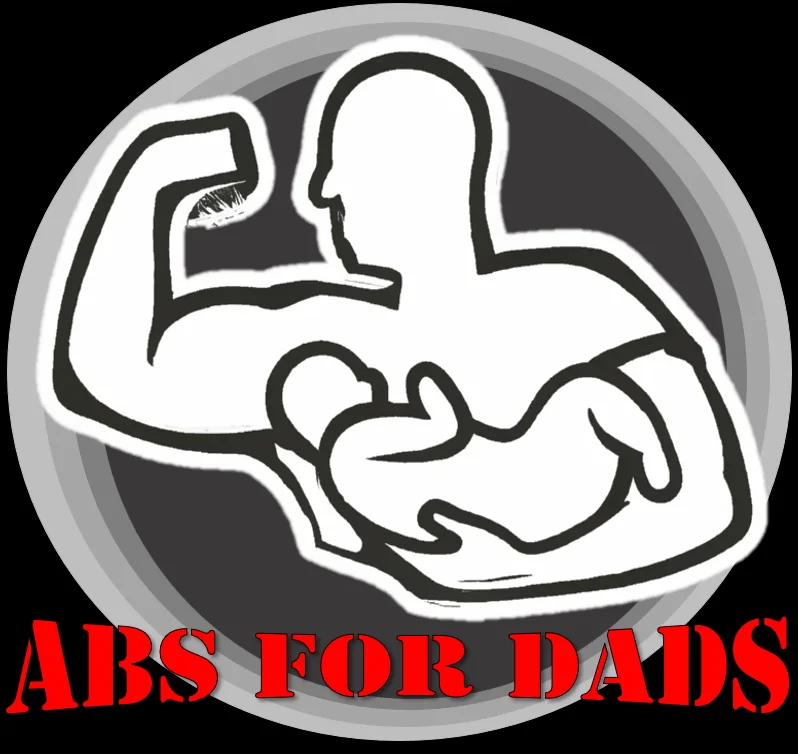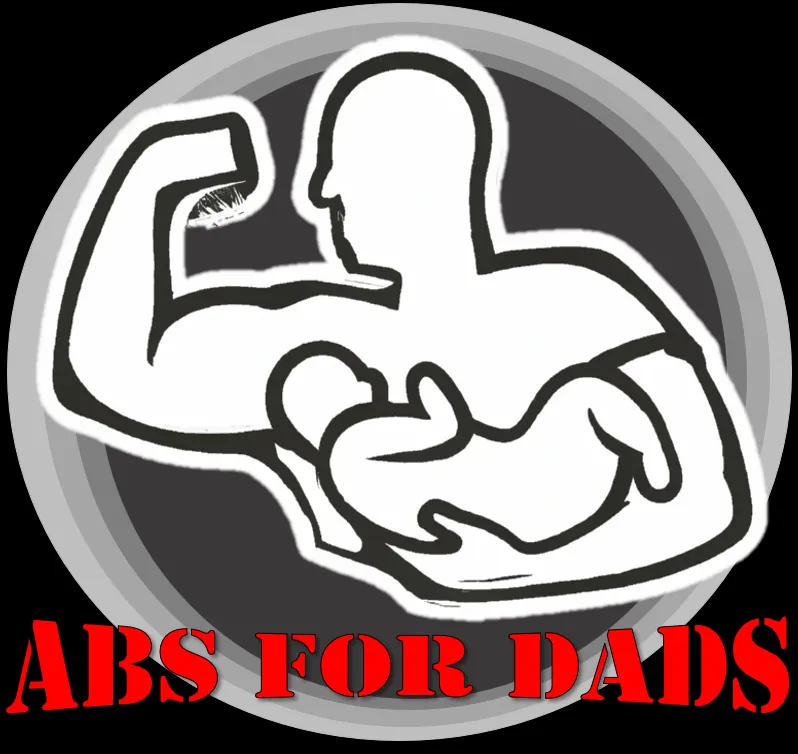THE BLOG
The Ultimate Fitness Blog for Dads
TOPICS
Welcome to Abs For Dads, your premier resource for time-efficient fitness solutions tailored for busy fathers. Discover practical tips and expert advice to transform your health and fitness, seamlessly integrating into your demanding schedule.

Fitness
Explore our curated fitness tips and routines designed to maximize efficiency for the modern dad. Whether at home or the gym, our time-sensitive workouts ensure you achieve optimal results with minimal time investment.

Nutrition
Unlock the secrets of hassle-free nutrition with our easy-to-follow meal ideas and delicious recipes. Abs For Dads empowers you to make informed food choices that align with your fitness goals, promoting vitality and strength.

Lifestyle
Enhance your overall well-being with our lifestyle hacks. From stress management to effective time optimization, our blog covers a spectrum of topics ensuring you achieve success in your fitness journey.

Slow Down to Speed Up: Avoiding Overtraining in Your Fitness Routine
Feeling like you've hit a brick wall despite stepping up your workout game? You might be facing the classic dad dilemma of overtraining. Yes, it's possible to have too much of a good thing—even exercise. Overtraining can slam the brakes on your progress, leading to fatigue, decreased performance, and more days nursing injuries than playing with your kids. How do you tell if you're pushing too hard or just enough? Let's unpack the signs of overtraining and how you can stay in the fitness fast lane without crashing.
What Exactly is Overtraining?
Think of overtraining as your body's way of saying, “Hey, even superheroes need a day off!” It occurs when you consistently demand more from your body than it can repair. The result? A decline in your workout performance and potential health issues that can sneak up quicker than a toddler hiding broccoli under their mashed potatoes.
Overtraining vs. Overreaching
It’s essential to distinguish between these two often confused concepts. Overreaching is like sprinting ahead in a marathon—it’s pushing your limits for a short period, knowing you'll let your body recover right after. It’s a calculated move that, with enough rest, can lead to gains in your performance. But remember, you can only dip into that red zone for so long before the wheels start to fall off. On the flip side, overtraining is what happens when you skip those necessary cooldown laps. It’s when the sprint becomes a never-ending race without breaks, leading to exhaustion and a drop in your overall fitness game.
Why It Happens
Overtraining isn’t just about doing too many workouts. It’s about not giving your body the time and resources to catch up. You might be hitting the weights harder and running longer, but if your recovery—through sleep, nutrition, and stress management—isn’t on point, you’re setting the stage for your body to tap out. Overtraining doesn’t happen at random.
The Role of Recovery
Recovery isn’t just a timeout; it’s an integral part of your training. Without adequate rest, your muscles don’t have a chance to repair and grow stronger. You’re sending the signal to your body get to bigger and stronger, and then when it’s ready to do that, you put it under more stress. It never gets the opportunity to build because it gets more and more broken down. It’s like trying to start a fire - you need to let it breathe and build before you hit it with more wood. And let’s not forget, recovery includes sleep (yes, that elusive full night’s rest), proper nutrition (no, coffee and leftovers aren’t a food group), and mental wellness (stress is sneaky and can undo all your hard work).
Understanding overtraining is crucial, not just for keeping up with your fitness goals but for ensuring you can play tag without tagging out. Let’s dive deeper into how to spot the signs of overtraining and steer clear of them, ensuring your fitness journey is both sustainable and enjoyable.
Recognizing the Red Flags
Here are some tell-tale signs that your body might be waving a white flag:
Constant Fatigue: Feeling more wiped out than usual, even after resting.
Moody Dad Syndrome: If you’re feeling more irritable than a sleep-deprived toddler, it might be a sign of overtraining.
Muscle Soreness that Won’t Quit: Lingering soreness that makes you dread stairs more than your kids dread bedtime.
Performance Plateau or Decline: When your gains have stalled or, worse, reversed.
Sleepless Nights: When you find yourself counting missed PRs instead of sheep, you might be overtraining.
Hunger Games: Unusual changes in appetite—either you’re not hungry or you could eat a horse (not recommended).
Strategies to Prevent Overtraining
Preventing overtraining isn’t just about cutting back on your workouts—it’s about smarter, not just harder, fitness planning. Think of it as tuning up your dad-mobile: it keeps it running smoothly so you can keep up with everything from soccer practice carpools to the spontaneous family dance-offs.
1. Schedule Wisely: Organizing your workout routine is like balancing your family calendar—you don’t double-book playdates with parent-teacher conferences. Similarly, mix intense training days with lighter sessions and ensure rest days are part of the plan to avoid uninetntional overtraining. It’s about creating a routine that includes downtime, much like ensuring there’s a quiet hour after a kids’ birthday bash.
2. Listen to Your Body: Pay attention to what your body is telling you. Persistent soreness, tiredness, or dread for workouts are like the check engine lights on your dashboard. Ignoring these signals can lead to breakdowns, so take them seriously. If you’re feeling wiped out, maybe swap a high-intensity workout for something more rejuvenating like mobility exercises or a playful game of tag with the kids. Overtraining means pushing your body past its sustainable limits, and it has a not-so-funny way of letting you know by falling apart. One of those things is a heightened probability of injury, which will take you out of the game a lot longer than just taking a week off would.
3. Prioritize Sleep: Just as you wouldn’t let your kids stay up past bedtime before a big day, don’t skimp on your sleep. Quality shut-eye is a cornerstone of recovery. Aim for 7-9 hours per night to let your body repair and build muscle. Yes, it’s challenging with a busy schedule, but it’s as crucial as any part of your workout.
4. Optimize Nutrition: Fueling your body properly is akin to putting high-quality gas in a sports car—it just runs better. Ensure your diet includes plenty of (high-quality) proteins, healthy fats, and carbohydrates that recharge your energy stores and aid in recovery. Think of meals as part of your training regimen, not just a daily chore.
5. Manage Stress: Stress can be as taxing on your body as a heavy workout. Managing stress through meditation, breathing exercises, or simply doing a hobby you love can help keep both your body and mind in top shape. Remember, a relaxed dad is a more effective dad.
6. Regular Check-ins: Just as you might have regular check-ins at work or with your family to ensure everything’s running smoothly, do the same with your training. Adjust your workout intensity and volume based on your ongoing assessments. It’s like fine-tuning your approach to keep your body responding well without hitting the overtraining red zone.
Implementing these strategies helps you maintain a balance that supports your health, fitness goals, and family life without pushing into the danger zone of overtraining. It’s about making your health regime work for you, not against you, ensuring you’re always ready for dad duty at its best.
When to Pull Back
If the signs are stacking up, it might be time to ease up on the gas pedal. Here’s how:
Take More Rest Days: Sometimes, the best way to move forward is to take a step back.
Lighten the Load: Dial down the intensity of your workouts. Swap a few HIIT sessions for something less intense like walking or a leisurely bike ride. Even following the same workout routine for a week, but going at just 50%, is a great way to make sure you stay on track without feeling like you aren’t doing enough.
Seek Professional Advice: A fitness coach or sports therapist can provide tailored advice, helping you adjust your training regimen to avoid overtraining without grinding to a halt. When you become a member of Abs For Dads, we’ll give you the exact formula for how much intensity to pursue week in and week out without overdoing it.
Conclusion: Train Smarter, Not Harder
Remember, dads, overtraining can sneak up on you faster than your kid can sneak cookies. Keep an eye out for the signs and adjust accordingly. Your body will thank you, and you’ll be better equipped to chase after your little ones without feeling like you’re dragging an anchor. Train smart, rest adequately, and keep those dad reflexes sharp—not just for dodgeball ambushes but for lifelong health.
Key Takeaways
Understand the Signs: Recognize symptoms like persistent fatigue, disrupted sleep, and frequent injuries as red flags of overtraining.
Balance Intensity: Mix intense workouts with lighter sessions and ensure regular rest days to prevent overtraining.
Prioritize Recovery: Adequate sleep and proper nutrition are essential for muscle repair and overall recovery.
Listen to Your Body: Pay attention to physical and emotional cues. Adjust your training intensity and duration based on your body’s feedback.
Manage Stress: Incorporate stress-reduction techniques such as meditation, deep breathing, or engaging in hobbies to support overall well-being.
Regular Check-Ins: Periodically assess your workout routine and make necessary adjustments to avoid overtraining and promote sustainable fitness.
Seek Professional Guidance: If symptoms persist, consider consulting with a fitness professional to tailor your work

Where Busy Dads Thrive in Health and Fitness!
Join the Abs For Dads community and redefine your health and fitness narrative. Bookmark our blog for ongoing insights. Prioritize your health without compromising your busy lifestyle – because being a fit and active dad is within reach.
Like What We're Saying? Sign Up For Our Newsletter!

Call 877-395-7147
Email:travis@absfordads.org
Site: www.absfordads.org

Abs For Dads LLC Privacy Policy

